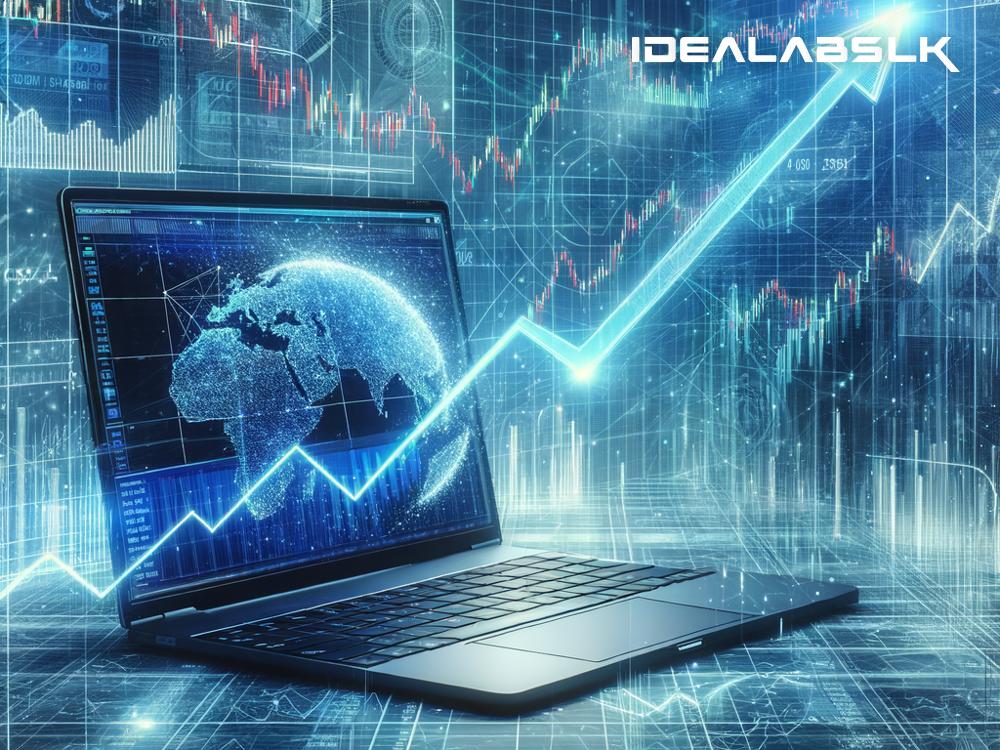AI for Trading: Realizing Smarter Investment Decisions Through Real-Time Data Processing
In today’s fast-paced world, making smart investment decisions takes more than just a sharp mind and experience in the finance industry. Enter the scene: Artificial Intelligence (AI) for trading. This technological marvel has revolutionized the way we approach investments, allowing for smarter, quicker decisions based on real-time data processing. But what does this really entail, and how does AI manage to outshine traditional trading methods?
Understanding AI in the World of Trading
At its core, AI involves the creation of computer systems that can perform tasks typically requiring human intelligence. These tasks include learning, decision-making, and problem-solving. When applied to trading, AI systems can analyze vast amounts of market data in fractions of a second, much faster than any human could. This capability is incredibly beneficial for identifying trends, predicting market movements, and executing trades at the optimal times.
The Magic of Real-Time Data Processing
One of the key advantages of using AI for trading is its ability to process real-time data. This means that AI systems can instantly analyze information as it's being released, whether it’s economic indicators, earnings reports, or news articles. By doing so, AI can adjust its trading strategies in the blink of an eye, responding to market changes faster than a human trader ever could.
This real-time processing is crucial in today’s markets, where conditions can change rapidly, and opportunities can come and go in seconds. AI's ability to keep up with this pace and utilize the latest information allows traders and investors to stay one step ahead, potentially leading to more profitable outcomes.
Making Smarter Investment Decisions
So, how does all this data processing lead to smarter investment decisions? AI doesn't just process data—it learns from it. By using techniques from a field known as machine learning, AI systems can improve their decision-making over time. They analyze past trades and market conditions to recognize patterns and refine their strategies for better future performance.
This learning capability is a game-changer. It means that AI systems can adapt to new market environments, making them incredibly versatile and valuable across different market conditions. For investors, this translates to more informed decisions, managed risks, and enhanced chances of achieving higher returns.
AI in Action: A Hypothetical Scenario
Let's consider a simplified scenario to illustrate how AI can impact trading. Imagine you're using an AI-powered trading system, and a major company unexpectedly announces a breakthrough product. Within milliseconds, the AI analyzes the news, predicts the stock’s sharp rise, and executes a buy order on your behalf. By the time most human traders have even processed the news, you’re already positioned to benefit from the upward trend.
This scenario highlights how AI's speed and analytical powers can translate into real advantages in the trading world, where time and information are of the essence.
Embracing the Future of Trading
Despite its impressive capabilities, AI in trading is not without its challenges. Issues such as data privacy, ethical considerations, and the need for substantial computational resources are all part of the ongoing conversation. However, the benefits that AI offers in making informed and timely investment decisions are undeniable.
For those looking to stay competitive in the trading arena, embracing AI and its real-time data processing capabilities is becoming increasingly essential. As technology continues to evolve, the future of trading looks set to rely heavily on AI and its remarkable ability to turn vast, complex datasets into smarter investment decisions.
Conclusion
AI for trading represents a significant leap forward in how we approach investments. By leveraging real-time data processing, AI systems offer an unparalleled ability to analyze market dynamics, predict trends, and execute trades with precision. While the journey of integrating AI into trading comes with its set of challenges, the potential for making smarter, more informed investment decisions is an opportunity that's too valuable to ignore.
As we continue to navigate the complexities of the financial markets, the role of AI in trading will undoubtedly grow, shaping the future of investment and opening doors to new possibilities for traders around the world. The key to success in this new era will be to understand and embrace the power of AI, ensuring that we use it responsibly and effectively to reach our investment goals.

